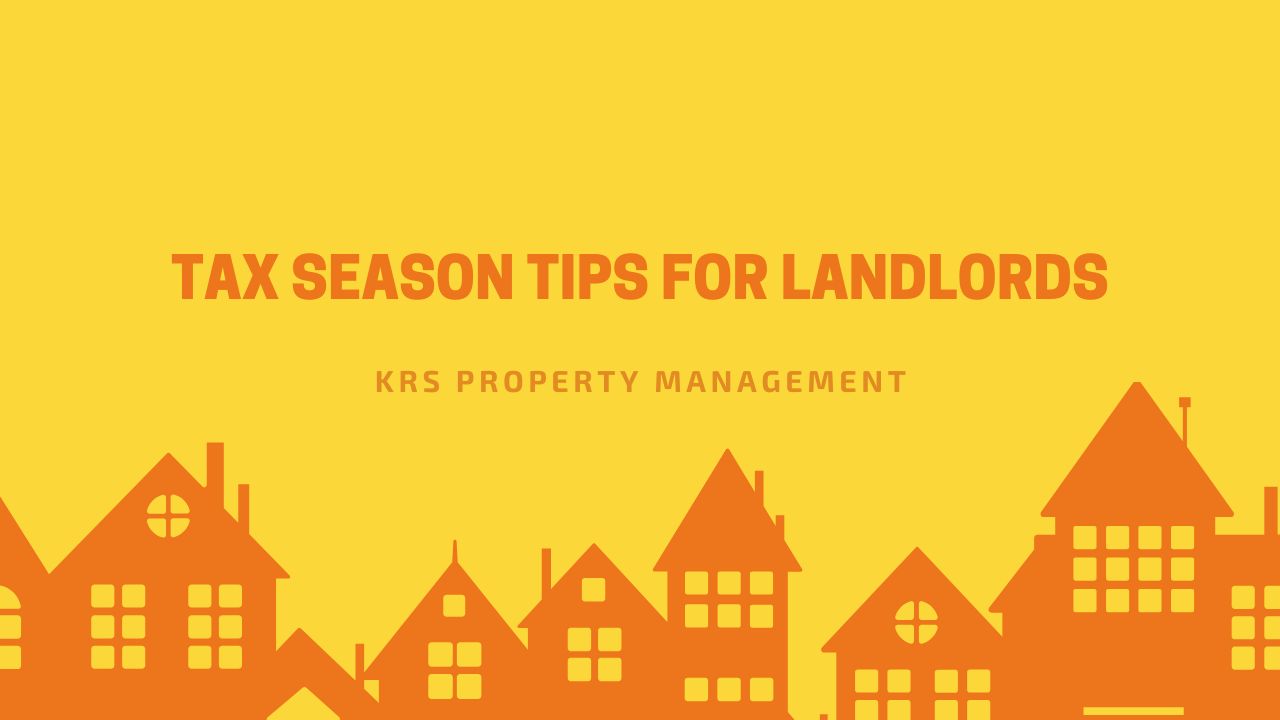
Tax season is one of the most critical times of the year for landlords. It can either save you thousands of dollars or cost you significantly if not handled correctly.
Landlords who stay organized, know their eligible deductions, and follow IRS rules are in a much better position when it comes time to file taxes.
Whether you own a single unit or manage a portfolio of properties, understanding how to handle your tax duties properly can make a big difference in your bottom line. Missing important deadlines or deductions can easily lead to penalties or lost income.
To help landlords get through tax season more efficiently and with fewer headaches, KRS Property Management has put together this article filled with essential tax tips and guidance.
Preparing for Tax Time as a Landlord
Getting ready for tax season is essential for landlords who want to maximize deductions and stay compliant with the IRS
Keep Accurate and Updated Records
The foundation of a successful tax season is accurate recordkeeping. Every income and expense related to your rental property should be documented.
This includes rent received, repairs, maintenance, utilities paid by you, mortgage interest, insurance, property taxes, and any fees for professional services.
Use a spreadsheet, bookkeeping software, or a simple folder system to stay organized throughout the year. Saving receipts and invoices is important in case of an audit. Organize these records by category and keep them accessible in case you need to refer to them quickly.
Understand Deductible Expenses
As a landlord, you can deduct many property-related expenses from your rental income, which reduces your taxable income.
Common deductions include:
Mortgage interest
Property taxes
Insurance premiums
Repairs and maintenance
Utilities (if paid by the landlord)
Property management fees
Legal and professional services
It is important to understand what qualifies as a repair (which is deductible in the year it occurs) versus an improvement (which must be capitalized and depreciated over time).
Repairs fix an issue or maintain the property’s current condition, while improvements add value or extend the property’s useful life.
Understand Depreciation Rules
Depreciation allows you to recover the cost of your rental property over time, usually over 27.5 years for residential buildings. You cannot depreciate the land, only the building and certain improvements.
Depreciation starts when the property is available for rent, not necessarily when it is occupied.Each year, you can deduct a portion of the property’s value based on IRS guidelines.
This is a valuable tax tool for landlords, but you must stop depreciating once the total cost has been recovered or when you sell the property.
Separate Personal and Rental Finances
Always keep your personal finances separate from your rental business. Use a dedicated bank account and credit card for all rental-related transactions.
This not only simplifies your recordkeeping but also avoids confusion when identifying business versus personal expenses.
Blurring the lines between personal and business finances can lead to mistakes and may raise red flags if the IRS decides to audit you.
Know Your Tax Filing Requirements
If your rental activity qualifies as a business, you may need to file a Schedule E (Form 1040) along with your personal tax return. Schedule E reports rental income, expenses, and depreciation.
You may also be required to issue 1099 forms to contractors or service providers you paid more than a certain threshold during the year.
Being aware of your filing obligations helps avoid costly penalties. Check if you need to pay quarterly estimated taxes, especially if you receive substantial rental income and are self-employed.
Explore the Qualified Business Income (QBI) Deduction
Depending on how you operate your rental business, you may qualify for the Qualified Business Income (QBI) deduction. This lets eligible landlords deduct up to 20% of their rental income if certain criteria are met.
The IRS considers factors like the number of hours spent managing the property and the formal structure of your rental activity.
Although not all landlords qualify, those who meet the requirements can benefit from a significant tax break. Be sure to check the latest IRS guidelines or consult a tax professional to determine your eligibility.
Track Travel and Home Office Expenses
If you travel to and from your rental property for business purposes, you can deduct travel-related expenses. This includes mileage, tolls, parking fees, and even travel to purchase supplies. Keep a detailed log of your trips and receipts for expenses.
Additionally, if you have a dedicated space in your home that you use exclusively for managing your rental property, you may qualify for a home office deduction. This deduction must meet strict criteria, so ensure the space is only used for rental activities.
Plan for Capital Gains and 1031 Exchanges
If you sell a rental property, any profit from the sale may be subject to capital gains tax. However, landlords can defer these taxes by using a 1031 exchange, which allows the proceeds from a sale to be reinvested in a similar property.
These transactions have specific rules and deadlines, so it is essential to plan ahead. This strategy can preserve your investment capital and help grow your portfolio tax-efficiently.
Bottom Line
Tax season can be stressful for landlords, but being proactive and organized makes the process more manageable.
From keeping detailed records and separating business expenses to understanding deductions and depreciation, these steps are essential for reducing your tax liability. Proper planning can help you make the most of your rental property and avoid surprises when it is time to file.
KRS Property Management supports landlords throughout the year, not just during tax season. We help property owners maintain accurate financial records, organize expenses, and operate efficiently.
Our team understands the complexities of rental income and tax requirements, and we work to make sure nothing is overlooked. If you are a landlord looking to simplify tax season and manage your property with confidence, reach out to us today.






